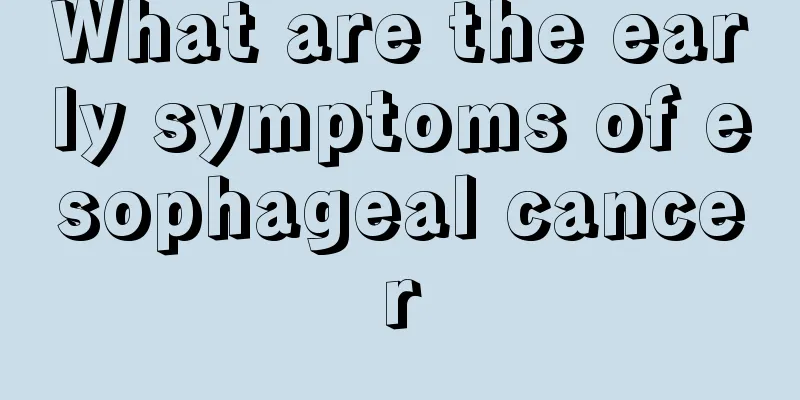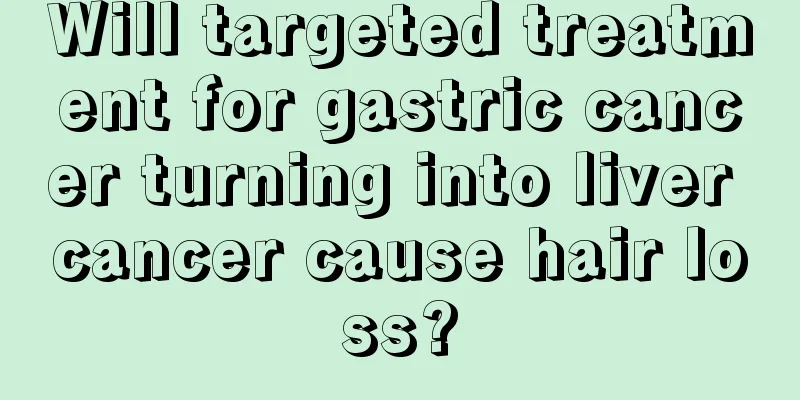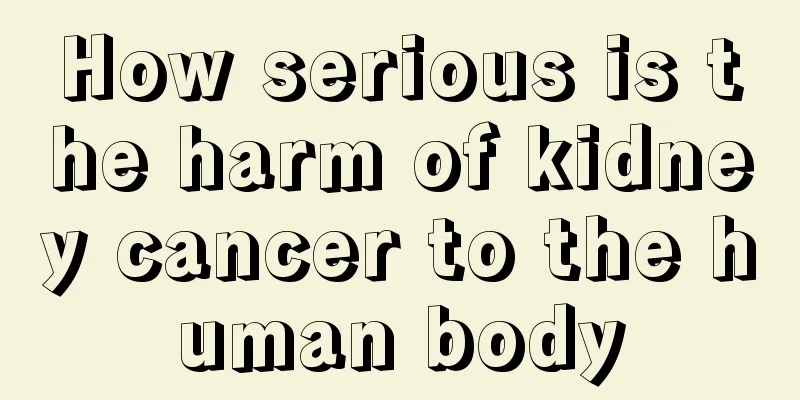What are the early symptoms of esophageal cancer

|
Early symptoms of esophageal cancer include difficulty swallowing, chest pain and weight loss, and timely medical treatment is key. Early detection can be confirmed through endoscopy, imaging and biopsy, and treatment includes surgery, radiotherapy and chemotherapy. 1. Dysphagia is the most common early symptom of esophageal cancer. Patients may feel that food is stuck in the throat or chest, especially solid food. As the disease progresses, liquids may also be difficult to swallow. This symptom is usually related to the growth of tumors in the esophagus, which leads to narrowing of the lumen. It is recommended to perform an endoscopic examination as soon as possible when dysphagia occurs to confirm the diagnosis. 2. Chest pain is another common symptom, which may manifest as persistent pain or discomfort behind the sternum or in the upper abdomen. This pain may be related to the invasion of surrounding tissues or nerves by the tumor. Chest pain may also be a manifestation of acid reflux or esophagitis, but if it persists, you need to be alert to the possibility of esophageal cancer. Imaging tests such as CT or MRI can help assess the extent of the tumor. 3. Weight loss is one of the typical symptoms of esophageal cancer, which is usually related to reduced food intake and tumor consumption caused by dysphagia. Patients may experience significant weight loss in a short period of time, accompanied by symptoms such as fatigue and loss of appetite. Nutritional support is very important during the treatment process, and nutritional status can be improved through a high-calorie, high-protein diet or enteral nutrition supplementation. 4. Hoarseness or coughing may be a sign that esophageal cancer has invaded the recurrent laryngeal nerve or trachea, especially when the tumor is located in the upper esophagus. This symptom usually indicates that the tumor has progressed to a later stage and requires medical attention as soon as possible. Bronchoscopy can help assess whether the tumor has invaded the respiratory tract. 5. Acid regurgitation or heartburn is one of the early symptoms of esophageal cancer, which may be related to abnormal esophageal motility or gastric acid reflux caused by the tumor. This symptom is easily mistaken for common gastroesophageal reflux disease, but if it persists for a long time or worsens, you need to be alert to the possibility of esophageal cancer. Gastroscopy is an important means of diagnosis. The early symptoms of esophageal cancer are diverse and atypical, and are easily ignored or misdiagnosed. If you experience symptoms such as difficulty swallowing, chest pain, and weight loss, you should seek medical attention for a detailed examination. Early diagnosis and treatment are the key to improving survival rates. Endoscopy, imaging examinations, and biopsy are the main means of diagnosis. Treatment methods include surgery, radiotherapy, and chemotherapy. The specific plan needs to be formulated according to the condition. |
<<: What is the difference between laryngeal cancer and pharyngeal cancer
>>: Is gastric malignant lymphoma cancer?
Recommend
Can radiofrequency ablation treat lung cancer
Radiofrequency ablation can be used to treat cert...
The "Fast Hair Growth" Law You Don't Know
Sometimes we cut our hair on impulse, then feel r...
What causes weight loss?
Because abnormal diet, insufficient nutrition int...
Common causes of rectal cancer
I believe that many people are concerned about th...
Fruits that clear away heat and reduce internal heat
Fruit is an essential food every day. Of course, ...
Scraping direction for inner thigh
Scraping is a very traditional Chinese medicine t...
I have small pimples on my hands which are very itchy
Acne on the hands is a very common phenomenon. Ge...
What's wrong with dark purple nails
Dark purple nails may be caused by trauma or insu...
Why do I feel sore shoulders when I wake up from sleep? Beware of frozen shoulder
If you wake up with shoulder pain, you should be ...
Pain in the lateral calf muscles
The human body often feels pain at unexpected tim...
What are the first aid methods for tracheal foreign bodies
First aid for tracheal foreign body, as the name ...
How long is the survival time of hepatoblastoma? What are the treatments for hepatoblastoma?
Hepatoblastoma is the most common malignant liver...
Why do my legs swell after standing for a long time?
Sitting or standing for a long time will cause le...
What are the precautions for inferior turbinate ablation?
The air quality in our daily life is getting wors...
How many years can a patient with mid- to late-stage transverse colon cancer live?
The survival period of patients with mid-to-late ...









